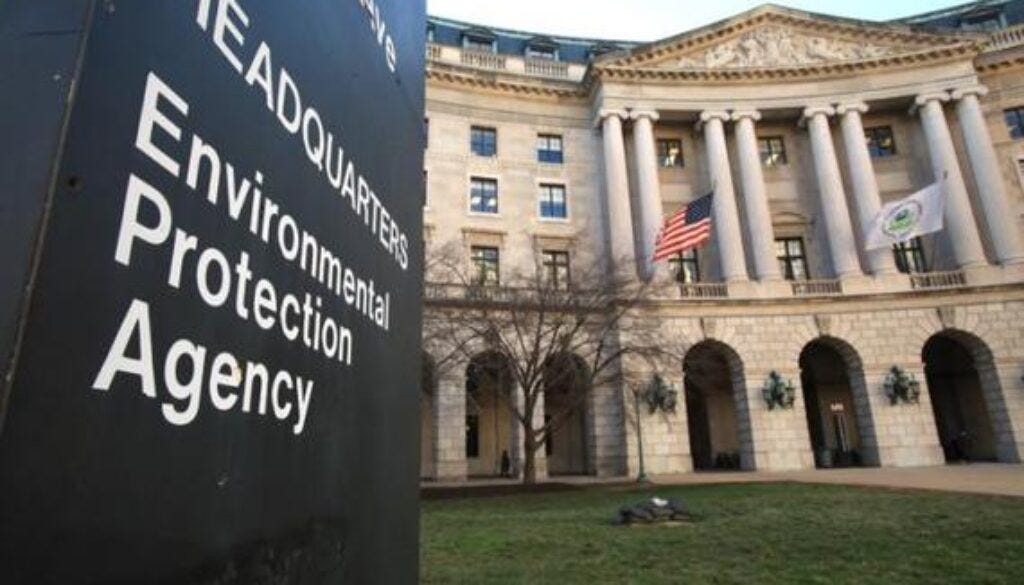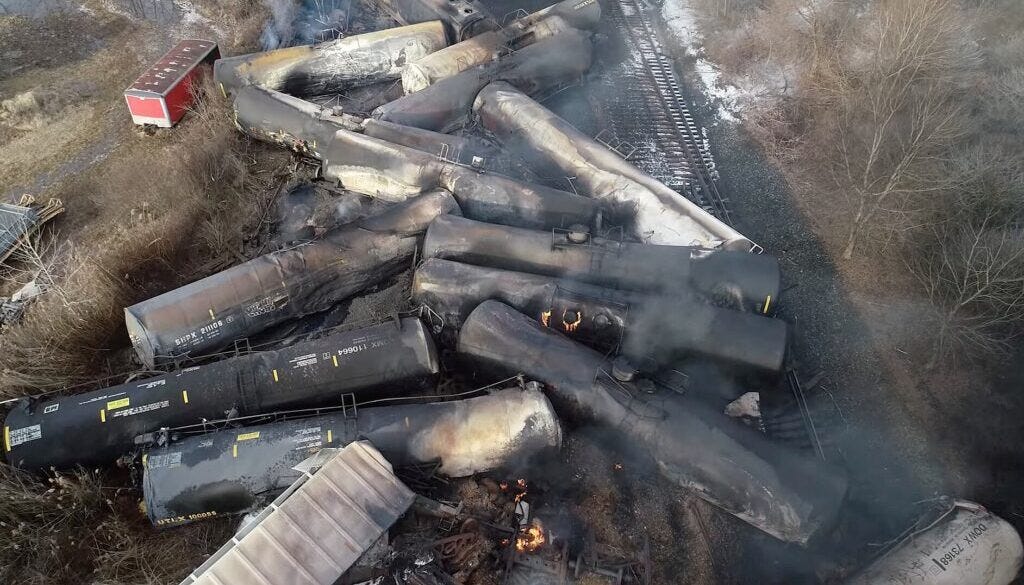Must-read recap: The New Lede's top stories
Vermont enacts Climate Superfund Act; paraquat ban advances in California; US regulator accused of misconduct in PFAS testing of pesticides; Norfolk Southern settlement; "climate offsets."
“Taking on big oil”: Vermont enacts Climate Superfund Act
Vermont has enacted a first-in-the-nation law that holds major fossil fuel companies financially responsible for the climate pollution associated with their products, a move applauded by environmental advocates.
Following passage by the legislature earlier this month, Vermont Gov. Phil Scott allowed the bill to become law on last week without his signature. He cited several concerns in a letter to the state senate secretary, warning that “Taking on Big Oil should not be taken lightly.”
The measure, dubbed the Climate Superfund Act, aims to recover climate-related costs incurred by the state from large oil and gas companies whose production of carbon-based fuels ultimately resulted in over a billion metric tons of atmospheric greenhouse gas emissions between 1995 and 2024 – pollution that is wreaking havoc on communities across the country in the form of deadly heat waves, catastrophic flooding and storms, and other extreme weather events. (Read the rest of the story.)
Paraquat ban stays alive, advances in California
A proposal to ban the weed killing chemical paraquat recently cleared the California State Assembly and now faces a fight in the State Senate over what would be the first such ban in the country.
The ban would take effect Jan. 1, 2026, outlawing the “use, manufacture, sale, delivery, holding, or offering for sale in commerce” of any pesticide product that contains paraquat. The bill provides for a process that allows state regulators to reevaluate paraquat and potentially reapprove it with or without new restrictions.
A chief concern cited by backers of the bill is research linking chronic paraquat exposure to Parkinson’s disease, an incurable and debilitating brain disease considered a top cause of death in the United States.
The final vote in the Assembly was 46-16 in favor of the bill, but opposition is expected to be stronger in the Senate, according to staffers with the office of Assemblymember Laura Friedman, who introduced the measure. California’s Senate Policy Committee is expected to take it up sometime before July 4, they said. (Read the rest of the story.)
US regulators accused of “egregious” misconduct in PFAS testing of pesticides
Documents obtained from the US Environmental Protection Agency (EPA) indicate the agency may have presented false information to the public about testing for harmful contaminants in pesticides, according to allegations being made by a watchdog group and a former EPA research fellow.
The claims come almost a year to the day after the EPA issued a May 2023 press release that stated the agency found no per- and polyfluoroalkyl substances (PFAS) in testing of samples of certain insecticide products. The press release contradicted a published study by the former EPA researcher that had reported finding PFAS in the same pesticide products.
PFAS contamination is a hot topic in environmental and public health circles because certain types of PFAS are known to be very hazardous for human health, and world governments and public health advocates are pushing to sharply limit exposure to these types of chemicals. Accurate testing for PFAS contamination is key to regulating exposure, making the accuracy and transparency of EPA testing a critical issue.
The allegations that the EPA incorrectly reported some PFAS test results were made Tuesday by the nonprofit group Public Employees for Environmental Responsibility (PEER), led by former EPA employees. (Read the rest of the story.)
Norfolk Southern agrees to $310 million settlement over Ohio train derailment
Norfolk Southern Corp. recently announced it will pay more than $300 million to resolve investigations by three US agencies in the aftermath of a catastrophic train derailment last year that contaminated the town of East Palestine, Ohio with toxic chemicals.
The settlement resolves “all claims and investigations” by the US Environmental Protection Agency (EPA), the Department of Justice (DOJ), and the US Department of Interior arising from the February 2023 derailment in which 38 train cars carrying vinyl chloride and other hazardous chemicals ran off the tracks in northeastern Ohio.
The EPA said the company had agreed to the following:
Spending $235 million on past and future cleanup costs
Paying a $15 million civil penalty for violations of the Clean Water Act
Paying $25 million for a 20-year community health program that includes medical monitoring and mental health services.
Spending approximately $15 million to implement long-term monitoring of groundwater and surface water for a period of 10 years.
Paying $15 million for a private drinking water monitoring fund that will continue the existing private drinking water well monitoring program for 10 years.
Paying an estimated $6 million to implement several environmental remediation projects. (Read the rest of the story.)
Postcard from California: Are corporate “climate offsets” just greenwashing?
(Opinion columns published in The New Lede represent the views of the individual(s) authoring the columns and not necessarily the perspectives of TNL editors.)
Apple touts the newest model of the Apple Watch as its first “carbon neutral” product – made with “100% clean energy” and “recycled and renewable materials” and shipped by “lower-carbon modes” instead of by air. But a close look at the watch’s environmental specs shows that reducing emissions of greenhouse gases in its manufacturing and supply chain only goes so far.
More than one-fifth of the claimed savings in emissions are attributed to Apple’s purchase of so-called climate offsets, including shares in a project to plant eucalyptus timber plantations in eastern Paraguay, far from its Silicon Valley headquarters or its factories in China.
Apple is but one of many corporate giants that has pledged to cut its company-wide emissions to “net zero” by 2030, joined by Google, Disney, Netflix and many more brands.
To get there, most plan to claim their purchases of climate offsets, also known as carbon credits, as emissions reductions. Through exchanges called verifiers or certifiers, companies buy, sell and trade shares in schemes that promise to reduce emissions, supposedly offsetting the climate pollution the companies can’t, or won’t, eliminate from their own operations. (Read the rest of the opinion column.)





